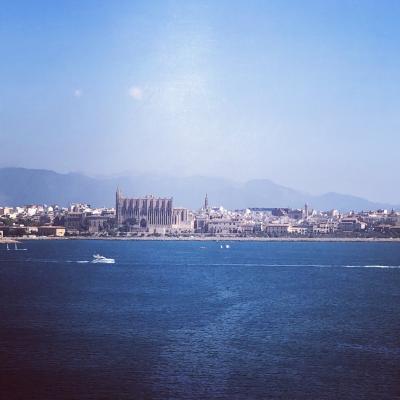What architectural features are commonly found in the possessions scattered across Mallorca’s countryside?
Similar Topics
mallorca possessions architecture
rural estates mallorca
stone buildings mallorca
terracotta tiled roofs
traditional mediterranean design
rural courtyards mallorca
wooden beams interiors
mallorca countryside heritage
The possessions scattered across Mallorca’s countryside are traditional rural estates that reflect a distinct architectural style shaped by the island’s climate, history, and agricultural heritage. These buildings are typically constructed with local stone, lending them a sturdy and rustic appearance that blends harmoniously with the surrounding landscape. The thick stone walls provide excellent insulation against both the hot Mediterranean sun in summer and the cooler winter months, creating a comfortable interior environment. Many possessions feature sloping tiled roofs made from terracotta, designed to efficiently shed rainwater while adding a warm, earthy aesthetic to the structures.
Inside, the layout often centers around a large main house accompanied by several outbuildings such as barns, granaries, or stables, connected by courtyards or stone pathways. The interiors usually have high ceilings with wooden beams, which enhance ventilation and add character through their natural textures and warm tones. Windows tend to be small and regularly spaced, often with wooden shutters that protect against intense sunlight and allow the owner to control light and air flow. Courtyards and shaded terraces are prominent, offering outdoor living spaces that capitalize on Mallorca’s mild climate and facilitate traditional outdoor activities.
Many possessions also incorporate features such as arched doorways and small balconies, which bring an element of elegance while serving practical purposes. The use of natural materials like stone, wood, and clay tiles is consistent throughout, underscoring a connection to the land and an emphasis on durability. These estates were initially agricultural centers, and their architecture reflects a balanced blend of functionality and simple beauty, with solid construction designed to endure and a design language that resonates with the Mediterranean surroundings. This enduring aesthetic continues to make Mallorca’s countryside possessions cherished examples of the island’s rural heritage and architectural tradition.
Inside, the layout often centers around a large main house accompanied by several outbuildings such as barns, granaries, or stables, connected by courtyards or stone pathways. The interiors usually have high ceilings with wooden beams, which enhance ventilation and add character through their natural textures and warm tones. Windows tend to be small and regularly spaced, often with wooden shutters that protect against intense sunlight and allow the owner to control light and air flow. Courtyards and shaded terraces are prominent, offering outdoor living spaces that capitalize on Mallorca’s mild climate and facilitate traditional outdoor activities.
Many possessions also incorporate features such as arched doorways and small balconies, which bring an element of elegance while serving practical purposes. The use of natural materials like stone, wood, and clay tiles is consistent throughout, underscoring a connection to the land and an emphasis on durability. These estates were initially agricultural centers, and their architecture reflects a balanced blend of functionality and simple beauty, with solid construction designed to endure and a design language that resonates with the Mediterranean surroundings. This enduring aesthetic continues to make Mallorca’s countryside possessions cherished examples of the island’s rural heritage and architectural tradition.
🧩 Related Questions
Related Question
What role do religious observances play in the structure and significance of Mallorca’s local celebrations?
Related Question
How has the military presence affected traditional fishing practices in the Alcudia region?
Related Question
Are there any legal restrictions or regulations on bullfighting enforced due to the efforts of animal rights groups in Mallorca?
